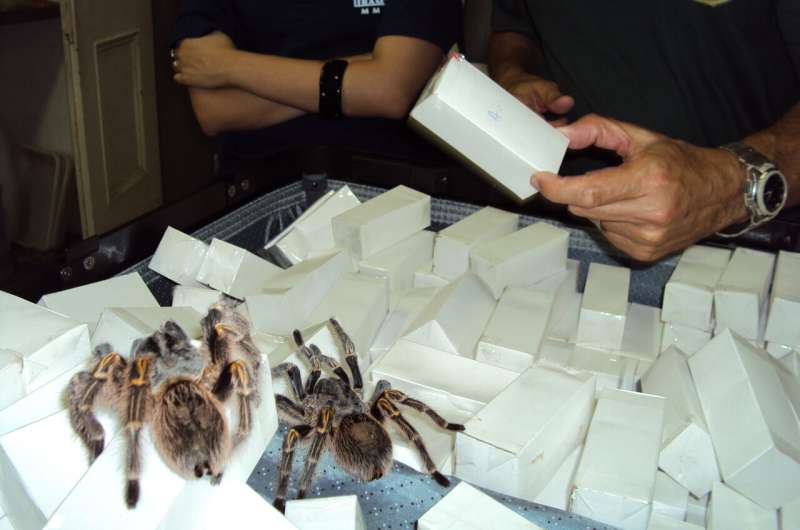This article has been reviewed according to Science X's editorial process and policies. Editors have highlighted the following attributes while ensuring the content's credibility:
fact-checked
peer-reviewed publication
trusted source
proofread
Facing illegal wildlife trade in the European union: A call for comprehensive measures

Wildlife trade affects all kinds of species, from insects and fungi to large plants and mammals. The global trade of numerous species poses a significant threat to their survival, increasing their risk of extinction.
The European Union is a major global hub for the illegal and unsustainable trade of those species whose international trade is not regulated by the Convention on International Trade in Endangered Species of Wild Fauna and Flora (CITES) and new measures recently adopted in the region to mitigate it are not enough.
Pedro Cardoso, a conservation biologist at the Centre for Ecology, Evolution and Environmental Changes (CE3C), at the Faculty of Sciences of the University of Lisbon (Ciências ULisboa), says, "We need better information on the trade of the vast majority of species that are not listed by CITES, to guarantee that the sourcing of these species was made legally in their country of origin and that this sourcing was made in a sustainable way."
According to the involved team of biologists, law experts, and economists united under EU project GLITSS—Globalization, Illicit Trade, Sustainability and Security, the EU falls short in ensuring that trade is documented, legal and sustainable, with possible consequences on the survival of the involved species.
The first proposal of the team is to create a database of all trade—legal or illegal—of all species, regardless of their inclusion in specific regulations. Currently, any species not listed is not registered by EU countries, and there is no information vital to ensure the trade is traced to its origins.
The second proposal is the establishment of a regulation in the EU akin to the Lacey Act in the United States, which establishes that if the capture or export of a species is illegal in the country of origin, it is illegal in the US. Adopting similar legislation in the EU would prohibit the import of specimens that violate the laws of their country of origin, not only mitigating regulatory gaps but also contributing to biodiversity preservation in nations facing enforcement challenges due to resource limitations.
Finally, the third proposal demands the presentation of evidence supporting the sustainability of trade practices. Even when legal, the trade of many species is putting them under threat. The EU should demand some evidence that the specimens were captured without affecting the sustainability of the populations, particularly important if they were sourced from the wild.
These proposed measures aim to transform the EU from being a global hub for unregistered, illegal, or unsustainable wildlife activities into a model of environmental protection concerning wildlife trade.
The work is published in the journal Science.
More information: Pedro Cardoso et al, Reform wildlife trade in the European Union, Science (2024). DOI: 10.1126/science.ado1142
Journal information: Science
Provided by University of Lisbon




















